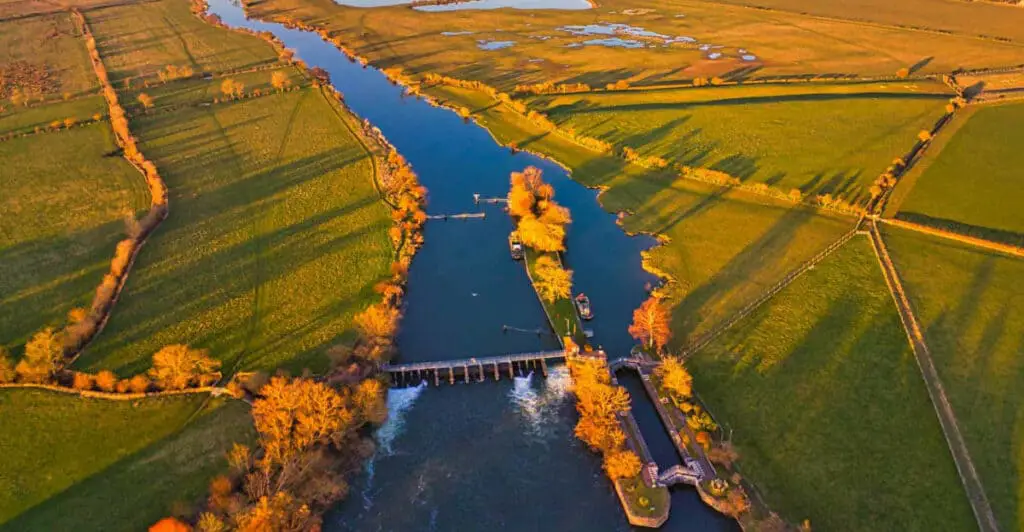Menu
Menu

Sound Rivers is a non-profit organization. It guards the health of the Neuse and Tar-Pamlico River Basins. It works together with concerned citizens. They monitor, protect, preserve, and restore North Carolinian watersheds. North Carolina’s landmass is covered by 23% water. The organization’s goal is to provide clean water to residents of North Carolina. The water is used for consumption, recreation, nature preservation, and agricultural use.
It was founded in 2015. It formed as a merger of two of the state’s oldest grassroots organizations. These organizations include;
· The Neuse River Foundation - established in 1980
· Pamlico-Tar River Foundation – established in 1981
The Neuse River Basin faces a number of problems. One of the biggest issues is large quantities of nutrient pollution. These nutrients include nitrogen and phosphorus. The pollution is because of large, diffuse areas with fertilizers and animal waste. This waste is washed from lawns and urban developed areas. It also comes from farm fields and industrial meat production facilities. It is discharged into rivers and streams. A large contributor to the waste is from swine operations. It contributes to 60% of excess nitrogen and phosphorus.
Some nutrients are beneficial to aquatic life in smaller amounts. When found in large quantities, they contribute to excessive plant growth. They can also lead to algae blooms and lower levels of dissolved oxygen in the water.
The quality of water in the Neuse River Basin is affected by pollution. The pollution comes from more than 400 sites. The state permits them to discharge treated wastewater into streams and rivers. Both situations are harmful to fish and other aquatic life.
It covers about 55% of its area. The Tar-Pamlico River Basin is made up of mostly wetlands and forested areas. It has about one-quarter of agriculture and a small part of urban developed areas. When compared to Neuse, Tar-Pamlico is more rural. However, Neuse is similar in size and hydrology.
The Tar-Pamlico feeds into a highly productive estuary. The estuary is a nursery for more than 90% of all commercial seafood. It also provides much of the recreational fish caught in North Carolina. The Albemarle and Pamlico Sounds have the second-largest estuary system in America.
The Pamlico River has many environmental issues. There is the immense growth of algae and high numbers of diseased and dying fish. These problems have occurred over the past two decades. They suggest a reduction in the quality of water.
Municipal treatment plants discharge wastewater into rivers and streams. It also discharges runoff from nonpoint sources. These include;
· Farmland
· Timber operations
· Urban areas
These sources contribute to pollution. They increase nutrient levels in the watershed. This results in an ecosystem that is unbalanced.
The staff at Sound Rivers are experts on the ecosystems of both watersheds. They work with statewide media, government officials, teachers, and other non-profit organizations. They help to educate the next generation of conservationists.
The lessons combine real-world scenarios and hands-on activism locally. The topics covered include:
Sound Rivers offers opportunities to serve as a resource with teachers. The organization provides programs tailored to your lesson plans. They have worked within schools throughout the basin. They support science and math curricula. They also inspire young minds to connect concepts to reality through water science.
Children experience nature by getting the basics of water ecosystems and issues. Sound Rivers work closely with teachers to lead curriculum-based programs. They hold events and presentations that build knowledge and understanding in children.
The staff has decades of experience in advocacy roles. These are mainly to protect the Neuse and Tar-Pamlico Rivers. It was founded by concerned citizens who care about the health and beauty of waterways. We’ve been protecting our cherished rivers since 1980.
Riverkeepers monitor the health of the rivers and ecosystems in our communities. They investigate polluters and advocate for the enforcement of existing laws. They also demonstrate conservation techniques that protect the health of natural resources.
Continued population growth in North Carolina has put a strain on the watersheds. This is because resource usage is at an all-time high. The environmentalists and nature lovers help advocate for the protection of water sources.
Sound Rivers serves as the primary protector of these rivers. Millions of people in North Carolina rely on the organization to keep watch over a watershed. The watershed covers 12,000 square miles. The watershed is nearly one-quarter of the state. Water from these sources flows through homes and businesses every day. Sound Rivers needs support from citizens to monitor and protect the health of the rivers.
Sound Rivers members use their voices together with thousands of others. The members in eastern North Carolina preserve the Neuse & Tar-Pamlico River Basins. The grassroots work possible thanks to generous member support from organizations and individuals.
Sound Rivers is the watchdog for the rivers. It is also the lifeblood of the people and communities that rely on the watershed. The organization receives donations from well-wishers and sponsors. These donations help the organization to:
· Educate youth about environmental impacts.
· Advocate for enforcement of existing laws.
· Develop new legislation to protect our natural resources.
· Conduct research to monitor and evaluate river health.
· Protect our precious waterways
Sound Rivers uses strategic action to stop pollution. It also promotes policies that will protect the rivers and watersheds. There are local, state, and federal government agencies charged with enforcing environmental laws. They are unable or unwilling to take critical enforcement actions. This is because of the lack of adequate resources. The potential for political and legal backlash is also another factor. Sound Rivers resolves matters through negotiation and cooperation without resorting to litigation. They are able to resolve problems through communication. They establish working relationships with industry, government, and civic groups. Sound Rivers serves as a resource for water quality and environmental issues.